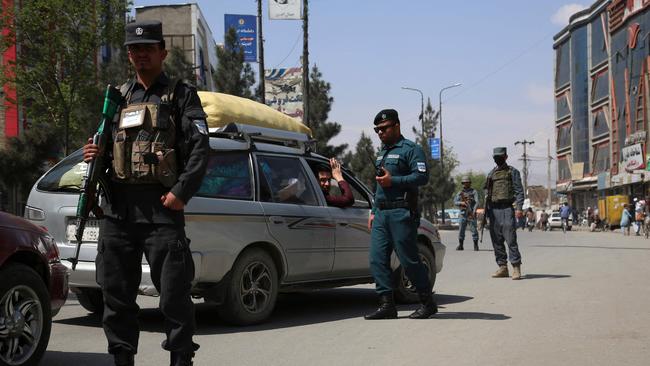Afghan war exit: Expected the unexpected to be worse than you feared


As if anyone needed reminding that exactly 20 years after Islamic terrorists struck New York’s twin towers and the Pentagon, prompting America to take the fight to al-Qa’ida’s Afghan sanctuaries, Islamic insurgents have chased another major power out of the country.
Biden had few good options after inheriting Donald Trump’s disastrous agreement with the Taliban, which granted everything they asked for — a withdrawal date and the release of thousands of prisoners — leaving the Afghan government with little leverage to negotiate a peace deal and the insurgents no incentive to talk.
The US believes it is beyond time to leave a country in which it has invested 20 years of effort, 2300 American lives and an estimated $US2 trillion. Fair enough.
But the least the Biden administration could have done is honour the US and NATO’s clear commitment to a conditions-based withdrawal that demanded the Taliban first reduce its violent attacks, negotiate in good faith and split with al-Qa’ida. It has done none of those things.
That both Washington and NATO have abandoned their assurances has not gone unnoticed in Afghanistan, nor will it by terrorist forces in Southeast Asia who will see the withdrawal as an inspirational victory for religion as a force multiplier.
“The striking thing is how little interest there seems to be from policymakers about what it means for the Afghans,” says William Maley, an ANU emeritus professor who has studied Afghanistan for decades. “The Afghans have really been left abandoned by this particular process.”
Women and girls, ethnic minorities and educated, progressive Afghans will have the most to lose from a resurgent Taliban, whose concept of Islamic rule has not changed from the 1990s.
The Afghan government is putting a brave face to the news.
The National Security Council director-general of international relations, Ahmad Shuja, says the country’s defence forces have conducted more than 90 per cent of all operations over the past year completely independent of US forces.
In that time, the Taliban has not seized a single major city or town (though it controls large swaths of rural Afghanistan).
“The US is still committed until 2024 to fund the Afghan National Defence and Security Forces, as are our NATO allies,” Shuja says, adding Washington has raised its diplomatic engagement and brought in Russia, China, Turkey, India and the EU to help build a regional consensus towards peace.
Across the Afghan political spectrum, there is universal will to bring the Taliban in from the cold.
“This is a once in a generation opportunity to come and negotiate and make peace, but their intransigence indicates they’re engaging in dangerous brinkmanship which could not just cost the Taliban but the Afghan nation as well,” he says.
What will it cost Afghanistan if the Taliban holds out for total victory? Already, ethnic militia and warlords are arming themselves in preparation — an all-too familiar prelude to all-out civil war.
The Taliban’s main prize is Kabul, where it hopes to again impose its dark, arcane interpretation of Islamic law on a population that has been working hard towards a more modern future.
Over years of reporting in Afghanistan, I have met women who attend university, join cycling teams, box, run safe houses, human rights commissions — even run for president.
Now, just kilometres outside of major Afghan cities, the Taliban is once again publicly flogging and stoning women.
“The danger is that for a very large number of Afghans, particularly those who are highly educated, the future will look so bleak … that they will attempt to leave,” Maley says.
More than 200,000 Afghans fled for Europe in 2015 after the last major troop withdrawal. “My great fear is that there will be a civil war and large refugee outflows. The moderate forces in Afghanistan are about to be hit by a huge storm that has been greenlighted by the Biden administration.”
In Afghanistan, he adds: “A good rule of thumb is to expect the unexpected, and expect the unexpected to be worse than you thought.”



Had Joe Biden been looking to hand the Taliban a propaganda victory, he could scarcely have conceived of a more effective plan than to set September 11 as the final withdrawal date for US troops from Afghanistan.